Inflatable boats come in every color and style you can imagine. They are lightweight, easy to transport, and marketed for a variety of uses. In particular, rigid inflatables (RIBs) are tough and are the boat of choice for recreational and military uses alike.
Maybe you’re thinking of buying a RIB. Whether your plan is to go island hopping in the ocean, fishing on your favorite lake, or using it for search and rescue, you may have heard that a RIB will suit your needs. You just have one question:
Are RIB boats safe?
Keep reading!
In this article, we’ll discuss all you need to know about the safety of RIB boats. We’ll also discuss some safety tips to further limit your chances of injury while you’re out on the water, and we’ll compare the safety of RIBs, in particular, with other types of inflatable boats.
Ready to dive in?
Table of Contents
Are RIB Boats Safe or Dangerous?
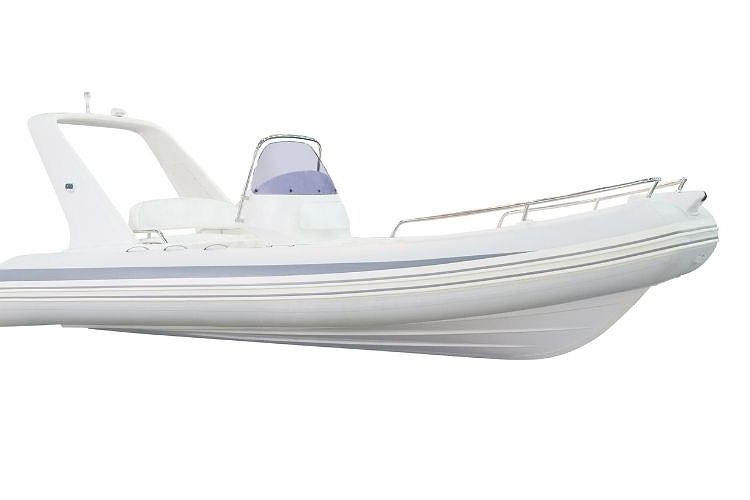
Every type of boat comes with some risks. There is always the threat of capsizing, of running out of fuel or battery power in the middle of the water, etc.
That said, in many cases, RIB boats are one of the safest boats you can buy. They have their own set of risks, but several qualities make them safer than some other boats.
- They have excellent shock absorption capabilities: Because of the inflatable bib that surrounds the outside of the boat, RIBs typically bounce away from anything they collide with. The shock may be felt but doesn’t cause a lot of jarring inside the boat.
- They are exceptionally buoyant: Like your favorite pool float toy, a RIB is nearly impossible to sink. This is once again thanks to the inflatable bib, as well as the lightweight quality of this type of boat.
- Many are surprisingly puncture resistant: One concern many people have about inflatable boats is that they may “pop.” But most RIB boats are made of materials that are nearly impossible to puncture, such as Hypalon and PVC-coated fabric.
- Most have multiple air chambers: And if the bib does get punctured, most RIBs have several small air chambers instead of one large one. That way, only one section deflates, and the other sections keep the boat afloat while you get to safety.
So it’s easy to see that RIBs are generally safer than you might expect; but you may still be wondering: exactly how safe are they?
How Safe are RIB Boats?

When compared against other types of boats, RIBs have some key advantages when it comes to safety.
Many RIBs are small enough to fit in small spaces, making them a good choice for transporting passengers between land and a larger boat offshore. Because they are lightweight and have great shock absorption, they handle both shallow water and tight spaces quite well.
RIBs are generally less prone to capsizing than most other boats, making them a safer choice for most water activities.
What’s more, RIBs can travel fast and efficiently since they’re so lightweight. This helps them get you out of tough spots in a hurry, get back to shore if a storm comes up, and conserve fuel or battery power, so you’re less likely to find yourself stranded on the water.
5 Safety Tips for RIB Boat Users
As mentioned above, no boat comes without risks. The main risks involved with using RIB boats include wear and tear from improper maintenance, exceeding weight limits and unevenly distributing the weight, and running into bad weather.
Let’s talk about some safety tips to help you avoid these unfortunate circumstances.
1. Proper Maintenance is Everything
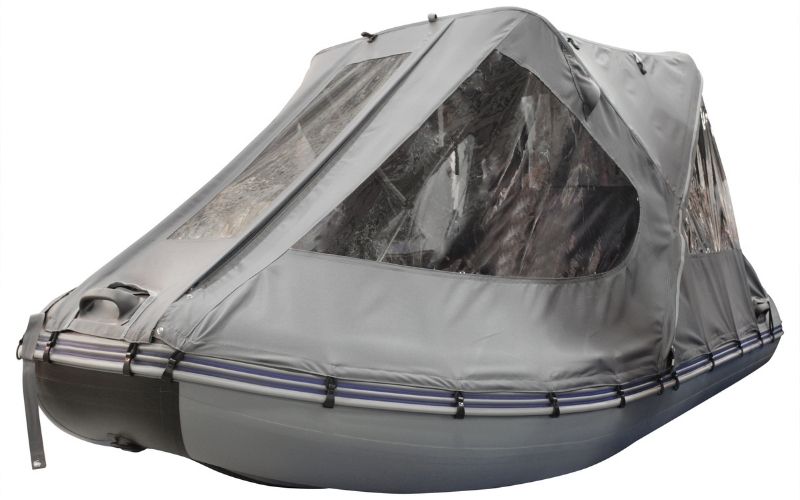
RIB boats are made of tough, puncture-resistant materials, but these materials can break down over time if the boat isn’t well cared for.
Leaving a RIB out in the sun can cause the inflatable bib to become brittle, which naturally makes it prone to cracking. This can cause irreparable air leaks.
Exposure to severe storms and extreme temperatures can also cause damage. Hail may damage the boat’s surface, while high winds may blow it around, which may cause punctures. Temperature swings will weaken the bib by causing constant air pressure changes.
It is best to store your RIB inside a climate-controlled garage. If you don’t have one, make sure you invest in a high-quality protective cover and keep your boat tied down.
2. Avoid Sharp Objects if Possible
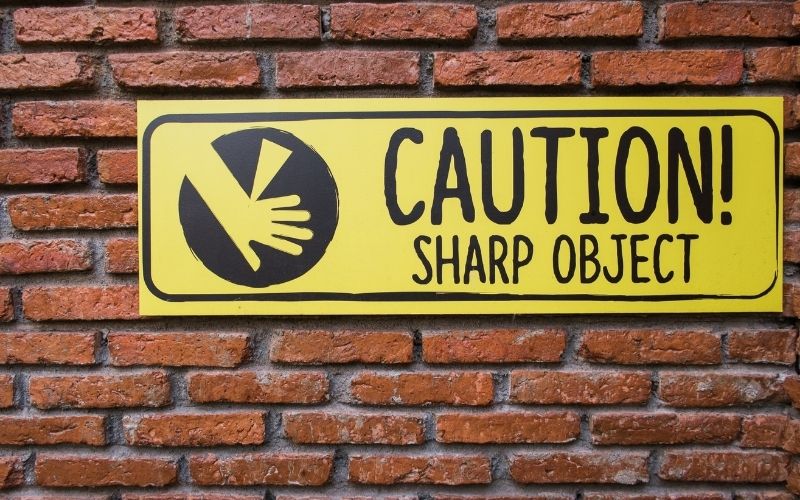
Though most RIBs are puncture-resistant, it’s best not to take any chances if you don’t have to. Always try to be aware of your boat’s surroundings, both in and out of the water.
Check for sharp edges on your transport trailer, avoid airing up your boat on craggy shorelines, and watch out for jagged rocks in the water. Even if you don’t think a particular area poses a threat to your boat, it’s better to be safe than sorry.
3. Follow Recommended Weight Limits
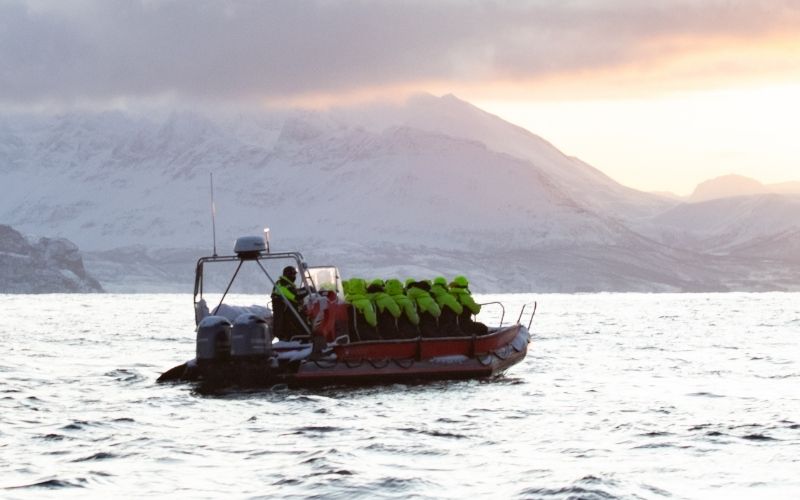
One of the biggest safety hazards of RIB boats is overloading them. They can only support a certain amount of gear and passengers. This is true of all boats, but it’s especially important with inflatable boats, including RIBs, because they are so lightweight.
Every inflatable boat should come with a passenger recommendation, a recommended weight limit, and a max weight limit. You should never exceed the passenger recommendation or the max limit, and it’s best to stay within the recommended limit if possible.
If all you see is a maximum weight limit, then the recommended weight limit should be about one-third below the maximum. For example, if your boat has a maximum weight limit of 2,000 pounds, then the recommended weight limit would be 1,333 pounds.
It’s also important to make sure the weight is evenly distributed, especially if you’re pushing closer to the maximum weight limit. Poorly distributed gear and passengers can throw off the boat’s balance, making it more prone to tipping and capsizing.
4. Pay Attention to the Weather

Some RIB boats are more heavy-duty than others–some are made for daring water rescues and are safe to use during storms. But the vast majority are too lightweight to handle severe waves and thrashing rains.
Before heading out on the water, always check the weather forecast. If there is a chance for lightning or sudden storms to flare up, it might be best to wait for a better day or choose a calmer body of water.
Remember: RIB boats are extremely buoyant, but they are light enough to be flipped over by high winds or large waves. Know what your boat is capable of, and stay within its limits. There is no need to test its durability at the risk of your own life.
5. Have a Backup Plan in Place
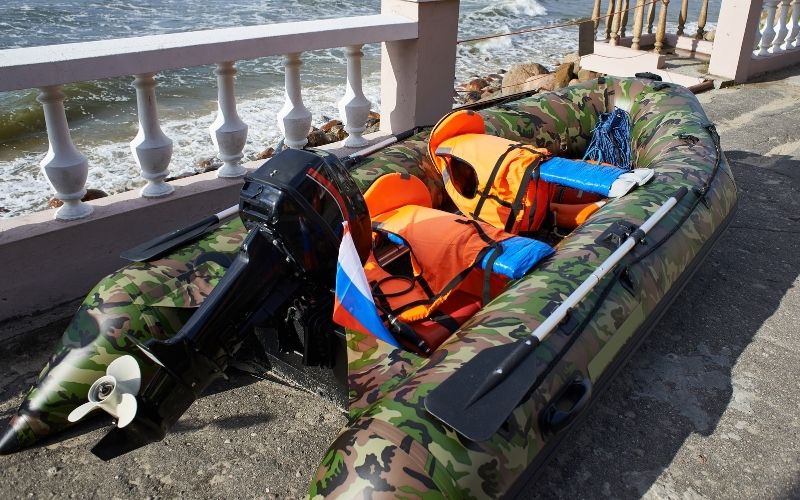
It’s important to think ahead about what you will do in case you do have a problem with your boat. Consider how your boat is powered and, if possible, keep a spare battery or a pair of oars on board in case your motor should fail.
It might also be a good idea to keep lifesavers or other small flotation devices on board should you have to abandon the boat or in case a storm comes up.
Most importantly, make sure you and any passengers are wearing lifejackets. Lifejackets are required by every state in the U.S., and they may save your life if you find yourself washed over the side of the boat capsizes.
RIB Boat vs. Air Floor Inflatable: Which is Safer?
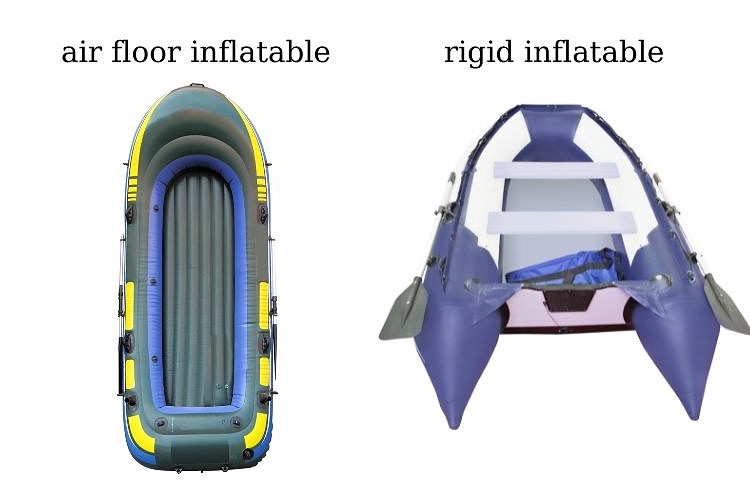
There are two main types of inflatable boats: rigid inflatables, which we’ve discussed in this article, and air floor inflatables.
As you might expect, air floor inflatables do not have solid hulls as rigid inflatables do. With air floor inflatables, the entire boat is composed of inflatable chambers.
So which type of boat is safer? It depends on how they are used.
RIB boats are generally safer than air floor boats because they are larger, stronger, and better made. In many cases, air floor boats are little more than glorified pool floats, and even those large enough to go on a lake are best suited for calm waters.
Air floor inflatables are almost too lightweight, which makes them very easy to overload. They are generally more prone to damage because a larger amount of the boat’s surface is inflatable. Also, air floor inflatables often don’t have as many separate air chambers as RIBs do.
That said, it may be safer to use air floor inflatables in small, calm ponds, especially if you’re paddling by hand. They are easier to handle and transport than most RIBs, making them a great choice for beginners who are just starting to get a feel for being on the water.
It’s also worth noting that most inflatable kayaks are technically air floor inflatables. They are specially designed for handling rivers and minor rapids, so they are actually safer than RIBs for these specific uses.
Conclusion
Rigid inflatable boats are very safe and are suitable for many different uses. Their enhanced buoyancy, shock absorption, and puncture resistance are all qualities that make them some of the safest boats on the water today.

Sarah Hood has been writing for Anchor Travel since 2021. When she’s not writing, she enjoys cooking, singing, and spending time in the great outdoors.

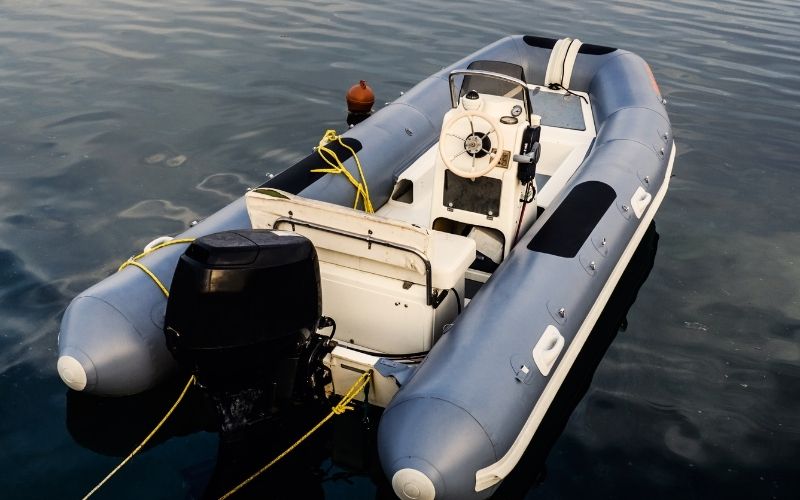
Gerry Burden
Thursday 14th of October 2021
I am looking for my perfect inflatable tender, you see I just bought a 43 ocean live aboard and I am new to the liveaboard life. I started researching tenders and believe inflatable is the way to go, I have a 14'-9" beam with a large swim platform and hoist for the outboard motor. My ideal tender will be stable plane with a 15hp outboard, carry up to 5 passengers and have a high weight capacity. In my reading I was lead to newport vessels, which led me to your comparison article. Prices on used tenders dont inspire me, so I am looking new 12' is where I am looking, I want excellent construction and performance a tender that will last! I plan to store the tender on its side on the swim platform while traveling long distances, and leaving it in the water or on land while a shore assuming I am living on the hook at that time. Any articles or suggestions would be greatly appreciated!!!